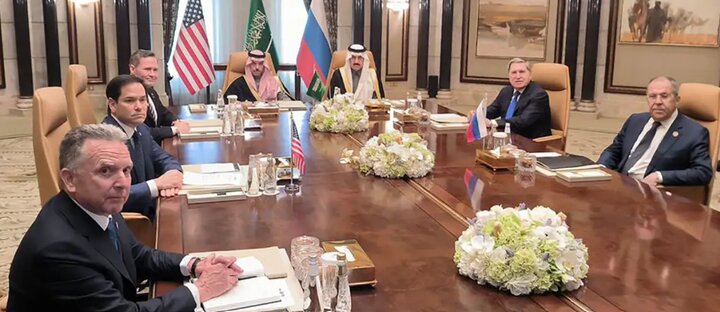The war in Ukraine began on February 24, 2022, when Russia recognized the independence of the Donetsk and Luhansk People's Republics.
President Vladimir Putin, citing Western neglect of Moscow's security concerns, initiated a military operation he termed a "special operation."
The war has severely affected the global economy, notably driving up energy prices and straining military budgets worldwide.
From February 2022 to mid-2024, international aid to Ukraine reached approximately $330 billion, with substantial military support from the U.S. and European nations.
Currently, negotiations to resolve the crisis are taking place, with U.S. and Russian representatives meeting in Saudi Arabia.
The economic toll on Ukraine is considerable, with Russian forces occupying about 18% of its territory, particularly in key industrial regions.
This occupation has led to a significant GDP decline due to the loss of critical infrastructure, including coal power plants and the Zaporizhzhia nuclear power plant.
Economic forecasts suggest that Ukraine's GDP growth hinges on the cessation of hostilities.
Additionally, the war has triggered widespread migration, depleting the active workforce and reducing productivity.

The destruction of transport infrastructure and the blockade of seaports have further hampered exports, negatively affecting foreign exchange earnings and trade balance.
Ukrainian Defense Minister Rustem Umerov recently stated, "We have spent over $150 billion from our budget and our partners' assistance. We need more funding to enhance our capabilities and attract investment."
Ukrainian Prime Minister Denys Shmyhal announced that the 2025 budget has a deficit exceeding $38 billion, with projected revenues of about $48 billion against expenses of $87 billion.
Regarding casualties, precise figures are elusive. Western sources often downplay Ukrainian losses while exaggerating Russian ones.
The British Ministry of Defense reported nearly 800,000 Russian soldiers killed or wounded, while the BBC estimated over 70,000 Russian military deaths. Moscow, however, claims its casualties are only in the thousands.
Civilian casualties are also significant, with a United Nations report indicating that by early 2025, around 12,500 civilians, including 650 children, have died.
However, these numbers may underestimate the true toll due to access restrictions.
As the war marks its third anniversary, casualty figures remain contentious and vary widely. In December, President Volodymyr Zelensky reported 43,000 Ukrainian soldier deaths and 370,000 injuries, including those wounded multiple times.
He also claimed that 198,000 Russian soldiers had been killed, with another 550,000 wounded.
Zelensky's announcement followed a social media post by then-President-elect Donald Trump, who claimed Ukraine had absurdly lost 400,000 soldiers, with nearly 600,000 Russian casualties, without citing sources.
Meanwhile, Russian Defense Minister Andrei Belousov stated that nearly one million personnel from Ukraine's armed forces have been killed or injured since the start of the operation in March 2022.
On February 24, Putin and Trump discussed the possibility of an in-person meeting, signaling new diplomatic complexities and growing distrust in transatlantic relations.

Following their call, Russian Foreign Minister Sergey Lavrov and U.S. Secretary of State Marco Rubio met in Riyadh, a discussion characterized as "constructive," but held without Ukrainian or European representatives.
In parallel, French President Emmanuel Macron hosted two meetings in Paris with around 15 countries regarding the war, highlighting divergent views.
Attendees, including the UK, viewed U.S. security guarantees as the sole deterrent against further Russian aggression, underscoring Europe's reliance on U.S. involvement in addressing the Ukraine issue.
These developments suggest a potential shift in U.S. policy under Trump's administration, which may be less inclined to support Ukraine as the conflict continues into its fourth year.
Meanwhile, the U.S. and Russia are looking to repair bilateral relations, while Europe struggles to support Ukraine against Moscow independently.
MNA

























Your Comment